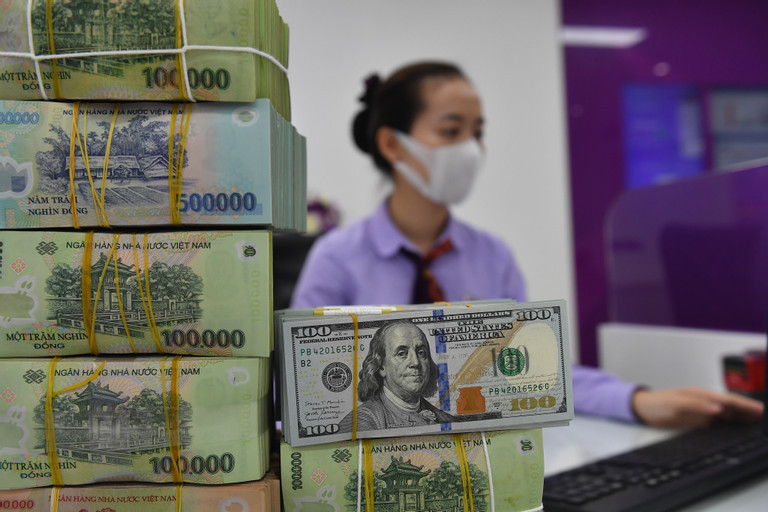
The Ministry of Finance (MOF) is consulting with other ministries, branches and associations on a draft statement to the government about the necessity to amend and supplement Decree 132/2020 on tax management of enterprises with related party transactions.
MOF has agreed to amend and supplement Point d, Clause 2, Article 5 of Decree 132 to exclude the determination of affiliate relationships in case credit institutions and other organizations having a banking function.
This is one of the provisions that is most complained about by the business community.
Businesses say borrowing capital from banks is a common activity of businesses in Vietnam, and providing loans is a normal operation of banks.
The interest costs of enterprises is the actual expenditure for production and business activities. Therefore, setting a cap on enterprises’ interest cost is unreasonable.
Experts say the provision must be amended and should have been amended a long time ago.
Chung Thanh Tien from the HCM City Accountants’ Association said there is no doubt that banks don’t have affiliate relationships with businesses. They are credit institutions and monetary business units.
“So, interest cost must be listed as an enterprises’ expense item and the amounts of money must be deducted when calculating their taxable incomes,” Tien said.
Nevertheless, the draft document doesn’t mention other problems that businesses are complaining about.
The HCM City Real Estate Association (HOREA), for example, proposed the removal of the ceiling level on interest costs, or lifting the ceiling level from 30 percent to 50 percent for EBITDA (earnings before interest, taxes, depreciation and amortization).
In addition, the proposal on increasing the time to transfer the interest costs beyond permitted levels from five years to seven years to suit the economic situation has not been mentioned.
For many years, MOF has been trying to work on a solution to prevent transfer pricing and thin capitalization. Both Decree 20 released in 2018 on tax management over related party transactions and Decree 132 on the same issue targeted the same issue.
However, analysts point out that the regulations don’t have a big impact on FIEs (foreign invested enterprises).
The aim of Decree 132 is preventing transfer pricing by FIEs with related party transactions. However, FIEs in Vietnam are subsidiaries of multinationals with headquarters in developed countries (Japan, South Korea, Europe and the US). Since the loan interest rates in developed countries are relatively low, FIEs mostly borrow capital from countries that allows them to cut interest costs. Therefore, FIEs are not affected by the regulation on expense ceiling.
When promulgating Decree 132, state management agencies referred to the international practice in developed countries and set a ceiling of 30 percent for EBITDA. However, Chung said this still could not satisfy businesses, because it did not fit Vietnamese economic conditions and caused difficulties for Vietnamese enterprises.
“Vietnam’s economy is not as large and strong as OECD countries, and the G7 and G20. It is understandable why they have to rely on bank loans to do business,” Tien said.
He doesn’t agree with the regulation on setting a cap on the interest cost deductible when calculating corporate income tax, because decrees (20 and 132) are not in line with the Law on Corporate Income Tax (CIT).
The law stipulates that if enterprises’ interest cost is below 150 percent of basic interest rates, the expense will be considered as ‘reasonable costs’ and must be a deductible when calculating CIT.
He said he was disappointed that MOF only intends to amend a part of the unreasonable regulation about deductible expenses, and still insists on the need to put a cap on the expenses.
Meanwhile, Nguyen Ngoc Quang from the Vietnam Federation of Accountants and Auditors (VICA) commented that lifting the ceiling on enterprises’ deductible expenses when calculating CIT is a reasonable move that suits Vietnamese conditions. In general, Vietnamese enterprises have limited capital and they have to borrow big loans to maintain operation.
“It would be better to lift the ceiling from 30 percent to 50 percent and authorize MOF to amend the figures when necessary,” he said.
Luong Bang